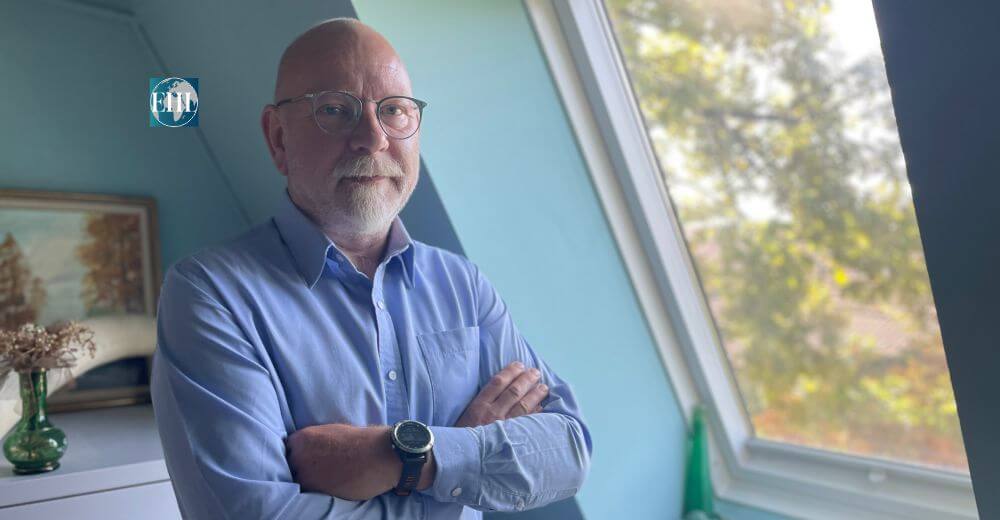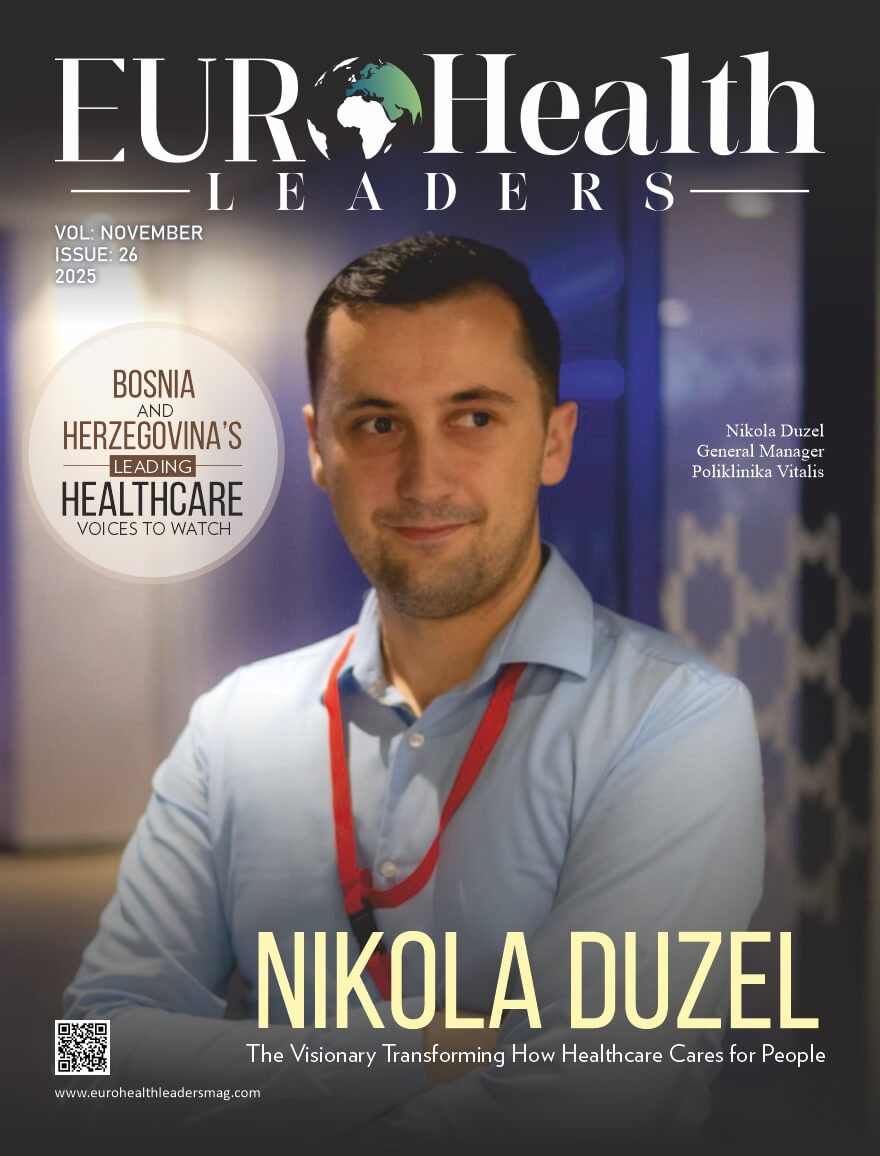Real innovation in healthcare doesn’t start with technology; it starts with listening. Listening to surgeons explain where current tools fall short. Listening to patients who want safer procedures and faster recoveries. Listening to the small details that most people overlook because they’re too busy chasing the next big thing.
That’s how Darij Kreuh General Manager of Ekliptik d.o.o., approaches his work. His path into healthcare wasn’t typical, and neither is the way he leads. Coming from a background in art and virtual reality, Kreuh has spent his career asking the kinds of questions that spark real change—questions that challenge assumptions and open new doors.
Today, Ekliptik creates surgical tools that make tough operations easier, safer, and more personal. But it’s not just about technology; it’s about working side by side with surgeons every day, improving ideas until they actually help in real life. It’s not just words or slogans. It’s real support for surgeons to make better, more precise decisions.
In a healthcare world that often feels slow to change, Ekliptik is proving that small, focused teams with the right mindset can quietly reshape the future of surgery—by listening first, and building second.
Let’s delve into the interview details below!
To begin, tell us about your professional journey—what key experiences and milestones have shaped your leadership path to becoming the General Manager of Ekliptik?
My journey began 35 years ago as a sculptor exploring virtual reality. I introduced original VR concepts that led to collaborations across art, technology, and medicine. A key milestone was Thumbelina—the first virtual puppet show where the audience could influence the story. Later, I, more or less by coincidence, joined the medical project JETRA, enabling real-time 3D interaction with liver tissue and vascular systems. Founding Ekliptik, with support from Alpe Adria venture capital, allowed me to further develop medical technologies. One of our first innovations was LIDIS, a system using a micro probe to guide accurate screw placement in femoral implants with minimal invasiveness.
Ekliptik is known for its technological innovation. Can you give us a snapshot of the company’s mission and how it intersects with the healthcare sector in Slovenia and beyond?
At Ekliptik, we are aim to transform surgery through personalized, image-guided technologies that enhance precision and support minimally invasive approaches. Our key solutions—EBS (planning software), CAST (custom surgical templates), E-PSI (custom implants), and GUIDING STAR (navigation system)—adapt to each patient’s anatomy, reduce reliance on X-ray use, and improve surgical outcomes. Slovenia, though small, offers a unique environment for innovation through close surgeon collaboration. Limited market size and funding present challenges, yet our partnerships with leading experts have driven development of user-friendly, advanced tools. International recognition is growing, and our commitment to personalized surgery continues to improve care locally and globally.
In your view, what are the biggest challenges facing healthcare systems today, and how does Ekliptik contribute toward solving or transforming these challenges?
Healthcare faces rising costs, growing surgical demands, and strict regulations. Innovation is slowed by long validation cycles and rigid certification processes—especially for smaller companies with advanced or non-standard solutions. Market dominance by large corporations’ further limits competitiveness. At Ekliptik, we may be small, but our agility allows us to adapt quickly to regulatory and technological changes. Close collaboration with surgeons and certification bodies helps us create user-friendly, high-precision navigation systems tailored to individual patients. By bridging innovation and clinical practice, we support more resilient, adaptive, and patient-centered healthcare systems.
What technologies or innovations are you currently most excited about, particularly those that Ekliptik is developing or implementing within healthcare applications?
At Ekliptik, we’re driving innovation in artificial intelligence and robotics—two key areas shaping the future of surgery. AI is already improving our 3D preoperative planning by accelerating joint simulations and offering intelligent recommendations that support clinical decisions. In robotics, particularly in orthopedics surgery, most systems are locked into proprietary implants. Our vision is different: we’re developing a versatile, implant-agnostic robotic platform adaptable to various procedures. We’re also tackling a major challenge—robotic systems often rely on optical navigation, which can be the weakest link. Ekliptik is actively working on solutions to make robotic surgery more precise, flexible, and reliable.
Ekliptik operates at the intersection of robotics, automation, and digital transformation. How do these areas redefine efficiency and safety within healthcare settings?
Surgery remains one of the most conservative areas in healthcare, relying on decades-old manual techniques and subjective judgment. At Ekliptik, we’re changing that by integrating 3D visualization, digital planning, and real-time navigation into surgical workflows. Our technologies replace guesswork with data-driven precision, improving safety, reproducibility, and full control throughout the surgical procedure.. Key innovations include electromagnetic navigation paired with adaptive planning software, real-time guidance for hip arthroscopy (FAI, CAM), and unmatched precision in complex procedures like periacetabular osteotomy (PAO) and tumor resections in the pelvis and spine. Ekliptik supports the entire surgical pathway—from virtual planning to guided execution—bringing next-generation accuracy into daily practice.
Leadership during times of disruption is crucial. How do you approach visionary leadership, and what principles guide your decision-making in such a dynamic industry?
In the highly regulated medical field, visionary leadership means staying focused yet adaptable amid change. For me, it starts with identifying true gaps in clinical practice—where innovation can make a real impact—rather than chasing trends. My leadership combines a strong grasp of regulations with firsthand surgical insight, helping bridge clinical needs and technical possibilities. This ensures our solutions are not only compliant, but also practical and valuable to surgeons. I aim to build a culture where bold ideas are encouraged, but always rooted in responsibility—to make healthcare safer, smarter, and more personalized.
What has been the most impactful project or partnership you’ve led at Ekliptik that you believe signals the future direction of healthcare innovation?
At Ekliptik, our projects have consistently anticipated future trends in surgical innovation. LIDIS was a breakthrough in distal locking without intraoperative radiation, followed by global players. With CAST, we pioneered patient-specific guides for spine and long bone surgeries—years before industry adoption. Our arthroscopic navigation system remains globally unique, offering real-time 3D depth control for precise, minimally invasive procedures, and laying the foundation for AI-driven surgical guidance. CAST and E-PSI further advance personalization with custom guides and implants based on individual anatomy. Together with tools like E-HIP and TOCOS, we’re shaping safer, smarter, and truly patient-specific surgical solutions.
Finally, what advice would you offer to aspiring leaders and tech entrepreneurs looking to make a meaningful impact in the healthcare technology space?
For future healthcare tech leaders, my key advice is to deeply understand the regulatory, clinical, and market landscape. Innovation alone isn’t enough—you must navigate a complex environment with care and precision. Surround yourself with creative, interdisciplinary teams, and involve multiple physicians early to gain diverse perspectives on the same clinical challenge. This is often what leads to truly valuable solutions. Be persistent—progress in healthcare takes time and resilience. And above all, stay curious. Keep learning, embrace feedback, and be ready to question assumptions. In a rapidly evolving field, adaptability and ethical grounding are what truly drive lasting impact.
Also Read: 5 Key Steps to Transform Healthcare Systems with Smart Technology









